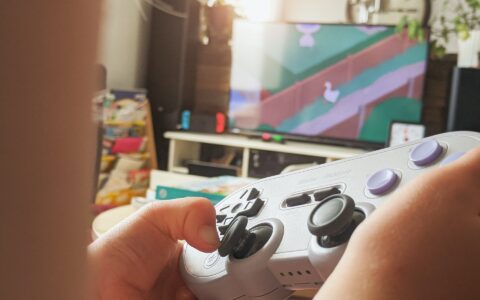5 Video Game and Screen Time Cautions that May Relate to OCD
Orange County Christian Counseling
Obsessive-Compulsive Disorder, or OCD for short, is a mental illness characterized by repeated obsessions and compulsions. Children and teens with OCD may have obtrusive thoughts or feel compelled to do specific tasks, whether they want to or not. Some studies have linked excessive video game playing to OCD.
5 Cautions Related to OCD and Screen Time
 Here are five cautions and corrective recommendations to consider.
Here are five cautions and corrective recommendations to consider.1. Look into your tweens’ or preteens’ media usage.
Tweens or preteens who spend excessive time playing video games also report a desire to play more while struggling to stop, even when they want to stop.
If your 9-12-year-old enjoys gaming, it may be worth looking at his or her media usage as a whole. For example, some tweens play 1-2 hours every night of video games, but they’re also on screens for homework or use cell phones.
All screen usage has been found to contribute to a higher likelihood of OCD symptom onset. Because kids spend their non-screen time thinking about video games, the hobby may contribute significantly to obsessive thoughts over time.
2. Ask your teen or tween how much time he/she spends watching videos.
Video watching, such as YouTube, has been found to impact young people’s propensity to develop OCD tendencies by 11% for every hour of videos consumed. An important distinction is that video watching can be anything. It can be videos related to schoolwork, YouTube how-to videos, social media videos, etc.
Helping your child monitor his or her intake of videos can be a helpful barometer for measuring mental health patterns. Simply developing awareness around the issue helps.
3. Pay attention to your teen’s self-control tendencies.
According to Jason Nagata, the author of a national study published in the Journal of Adolescent Health that linked OCD and excessive screen time, “screen addictions are associated with compulsivity and loss of behavioral control, which are core symptoms of OCD.”
Does this mean your child will develop OCD if he or she loves playing video games or watching YouTube videos? No, not necessarily.
But it’s helpful to keep your child’s behavioral tendencies in mind as he or she grows. Watch for warning signs, such as a refusal to quit playing video games, concealing his or her online activity, or jumping at the chance to play video games over and above other hobbies that once interested your child.
4. Don’t hesitate to ask a trained, trusted psychologist for an OCD screening.
While the term OCD can be alarming, studies show that if detected early and when given proper treatment, kids with OCD manage to cope well with life.
 It’s important to note that if your child struggles with obsessive tendencies or compulsive thoughts, it may not be caused by screen time. However, the additional screen time doesn’t help a child who already tends toward obsessive thinking.
It’s important to note that if your child struggles with obsessive tendencies or compulsive thoughts, it may not be caused by screen time. However, the additional screen time doesn’t help a child who already tends toward obsessive thinking.
You are not a bad parent if you ask your child’s pediatrician about this link. Taking a simple precaution could help your child in the long run if he or she does have an OCD diagnosis.
Children and teens who get early intervention through behavioral counseling usually fare quite well.
5. Watch for signs of perfectionism in your child.
Perfectionists tend to want to do everything they possibly can to score the best, do something “just right,” and get to the next level. Whether it’s scoring the most goals in soccer or beating his or her level on a video game, the motivation internally is high.
Knowing how to help a child with obsessive and compulsive tendencies doesn’t have to be overwhelming. Contact our office at Orange County Christian Counseling today to find a trusted counselor who can help.
“Game Controller”, Courtesy of Sigmund, Unsplash.com, CC0 License; “Switch”, Courtesy of Tyler Lagalo, Unsplash.com, CC0 License




